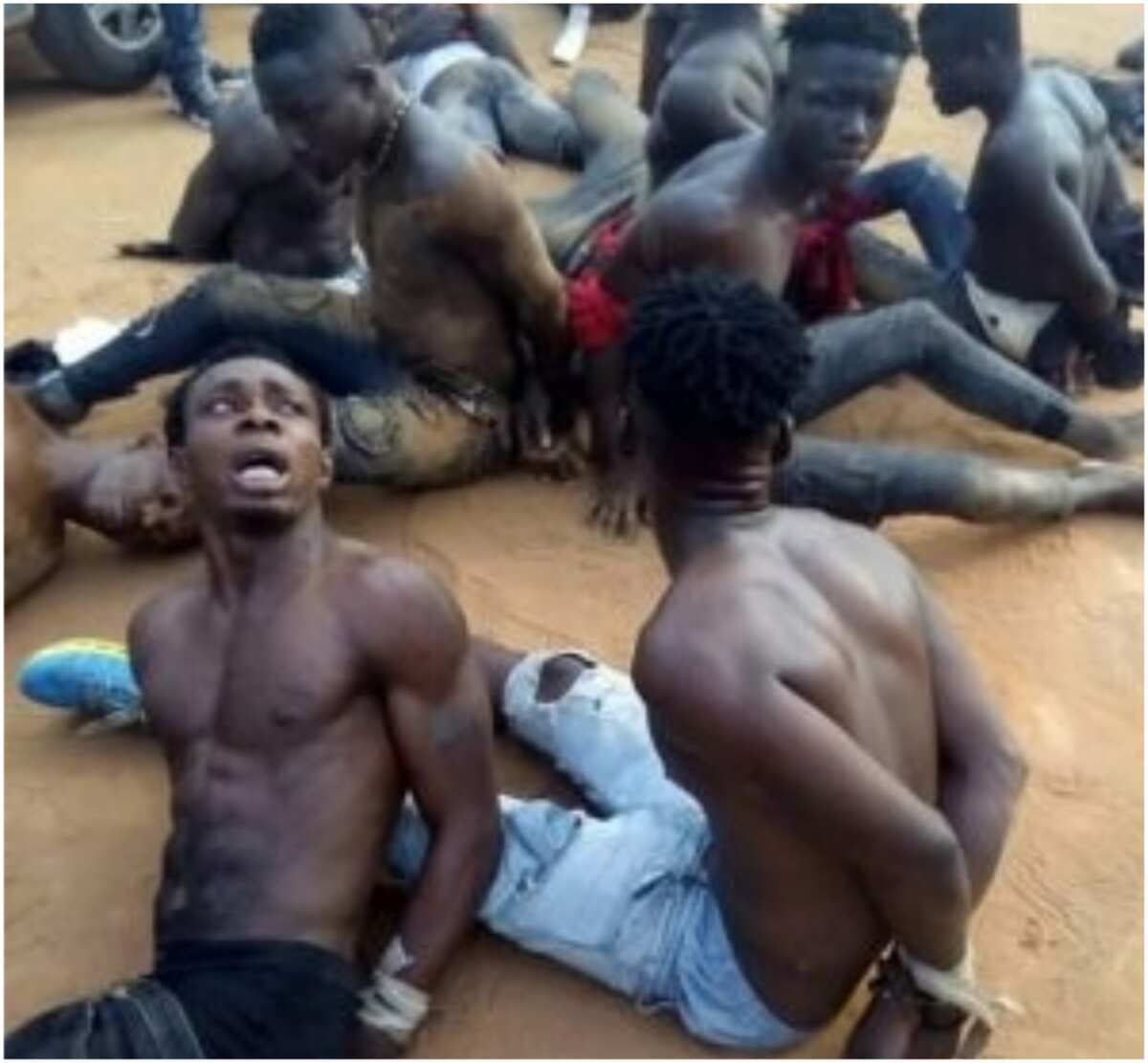- 10 youths have been arrested in Bende LGA, Abia state for allegedly attempting to snatch ballot boxes
- The youths defied a directive from President Buhari, ordering security personnel not to show mercy to anyone who is found trying to snatch ballot boxes
- The president had stated that anyone who engages in the act will not live to commit another crime
As Nigerians across the country cast their votes in presidential and National Assembly elections, 10 youths have been arrested in Abia state for allegedly attempting to snatch ballot boxes.
According to Daily Trust, the youths were arrested at different locations in Bende local government area of the state.

The youths pictured with their hands tied behind their backs, following their arrest (Photo credit: Linus Effiong for Daily Trust)
Source: UGC
READ ALSO: Elections 2019: Card readers malfunction after Osinbajo casts vote
Legit.ng notes that the alleged attempt comes in spite of a directive from President Muhammadu Buhari just before the elections, ordering security operatives to show no mercy to anyone who attempts to steal ballot boxes during the exercise.
President Buhari had warned that those planning to make away with ballot boxes during the elections will do so at the cost of their lives.
The president stated that anyone who engages in the act will not live to commit another crime.
PAY ATTENTION: Install our latest app for Android, read best news on Nigeria’s #1 news app
Meanwhile, Legit.ng previously reported that the speaker of the House of Representatives, Yakubu Dogara, faulted President Muhammadu Buhari’s warning that those who try to snatch ballot boxes during the general elections will be doing so at their own risk.
Dogara, speaking at press conference, said Buhari’s statement was a violation of Nigerian laws which have provided sanctions for electoral offenders.
He stated that the president’s statement was dictatorial in nature; noting that it indicates that the military had been given a central role into the conduct of the election, contrary to the Nigerian laws.
NAIJ.com (naija.ng) -> Legit.ng: Same great journalism, upgraded for better service!
2019 election: Who will win? Anambra residents speak - on Legit TV:
Source: Legit.ng
from Nigeria News today & Breaking Naija news ▷ Read on Legit.ng 24/7 https://ift.tt/2txetJ5
via EDUPEDIA24/7
Comments
Post a Comment